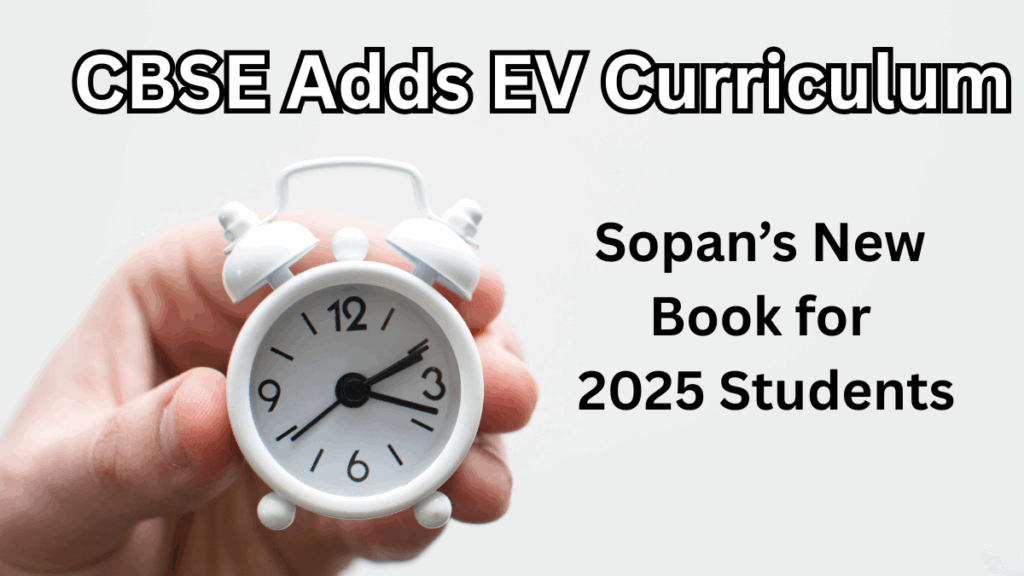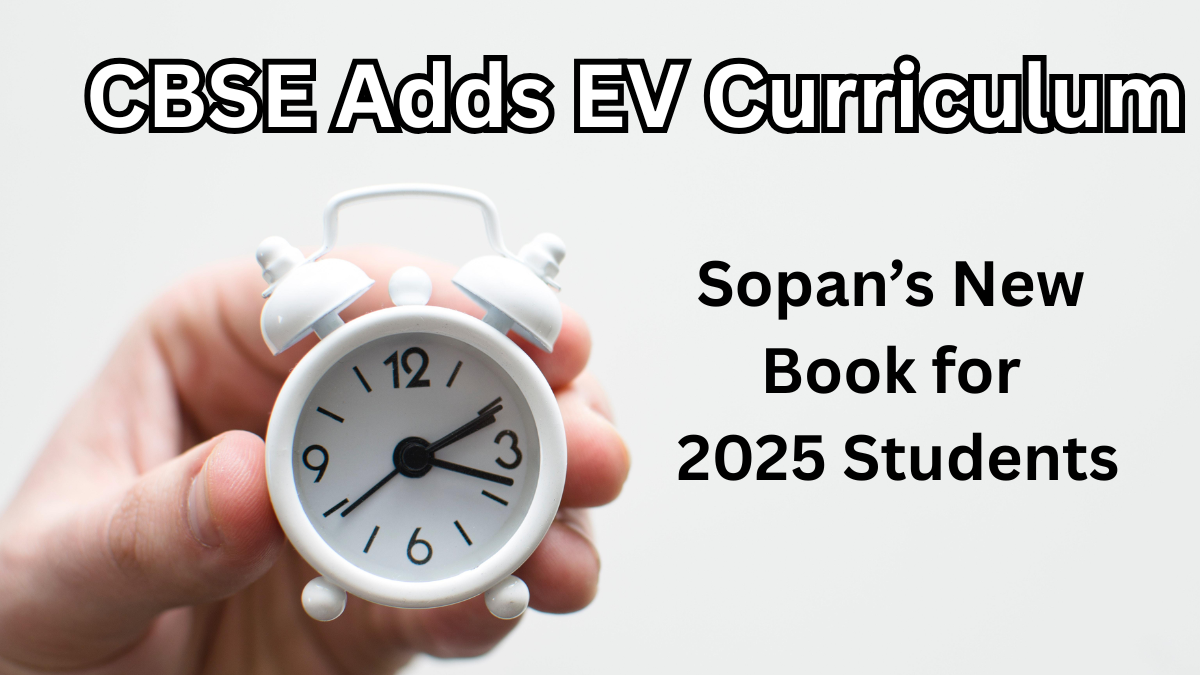The Central Board of Secondary Education (CBSE) is steering education into the future. In a progressive move, the board has added Electric Vehicle (EV) studies to its school auto curriculum, marking a big step toward sustainable education. Supporting this initiative is Sopan’s newly launched EV Fundamentals Book CBSE 2025, designed especially for students preparing for a green-tech future.

Why EV Education Matters for Indian Students
Key Reasons This Move is Significant:
-
Prepares students for an eco-conscious world
-
Aligns education with the booming EV job market
-
Promotes practical and technical learning from an early age
About Sopan’s EV Fundamentals Book CBSE 2025 Edition
Sopan’s latest edition is more than a textbook—it’s an immersive guide to EV technology, tailored to CBSE’s latest updates and India’s future mobility goals.
Book Overview
| Feature | Details |
|---|---|
| Title | EV Fundamentals Book CBSE 2025 |
| Publisher | Sopan Publications |
| Target Audience | Class 9–12 CBSE students under the school auto curriculum |
| Content Highlights | EV architecture, battery tech, motors, green systems |
| Extras | QR-based tutorials, worksheets, and quizzes |
What Students Will Learn
Students using the EV Fundamentals Book CBSE 2025 will gain hands-on knowledge in the following areas:
-
EV fundamentals and system architecture
-
Types of electric motors and batteries
-
EV charging methods and grid connectivity
-
Eco-friendly transportation practices
-
Mini-projects and case studies for real-world exposure
How It Fits Into the School Auto Curriculum
CBSE has smartly included EV education within its growing school auto curriculum, making it a vital part of India’s education reform.
Integration Details:
-
Introduced from Class 9 onwards
-
Combines theory with practical lab sessions
-
Includes future career guidance for EV-related fields
The Bigger Picture: Building Future EV Innovators
The decision to include EV studies in CBSE curriculum is about preparing students for future industries. With this knowledge, students are better equipped for roles in:
-
Automotive engineering and design
-
EV manufacturing and testing
-
Battery tech and renewable energy research
-
Environmental policy and sustainable development
FAQs
Q1. What is the EV Fundamentals Book CBSE 2025 about?
It’s a new textbook by Sopan designed for CBSE students, offering comprehensive knowledge on electric vehicles, batteries, and sustainable transportation.
Q2. Who should study this new school auto curriculum?
It’s ideal for students in Classes 9 to 12 who are interested in science, environment, or engineering, and want to explore career options in the EV space.
Q3. Is the curriculum applicable in all CBSE schools?
Yes, CBSE has made this part of its vocational and elective options. However, implementation might vary depending on a school’s capacity.
Q4. Are there practical elements in this curriculum?
Yes. Students get hands-on lab work, participate in mini-projects, and gain insights through real-life industry examples.
Final Thoughts
With the launch of the EV Fundamentals Book CBSE 2025, students have a practical, forward-looking tool to explore electric mobility. This inclusion in the school auto curriculum isn’t just about textbooks—it’s about building the next generation of clean-tech thinkers.
Click here to learn more
